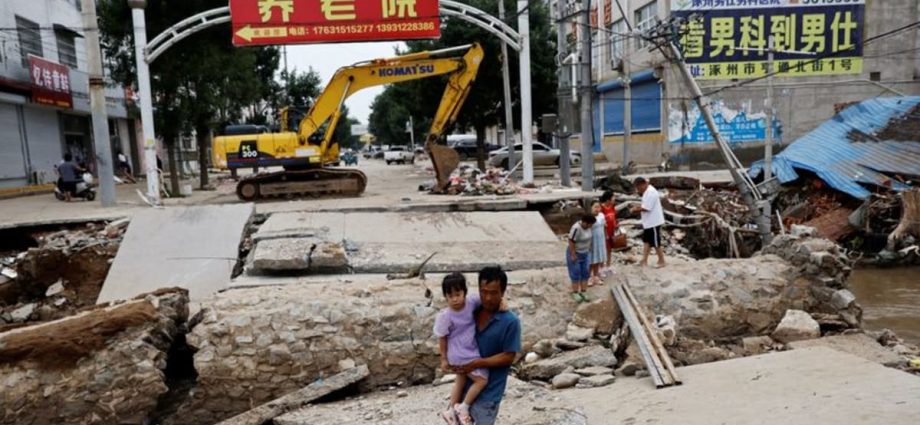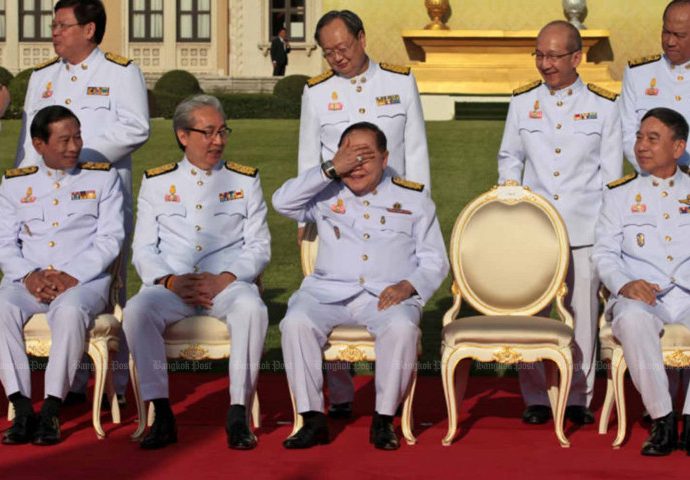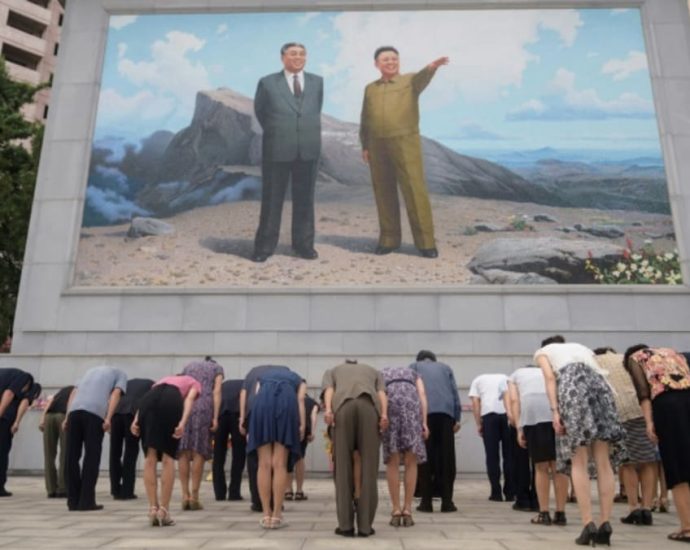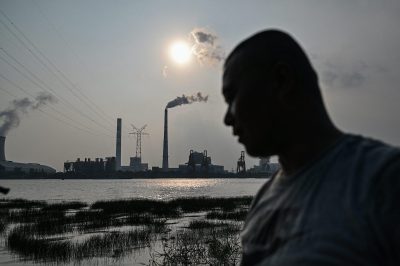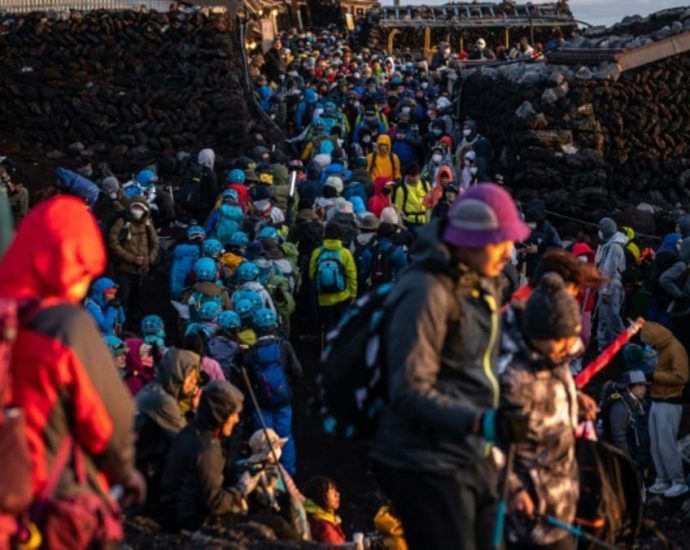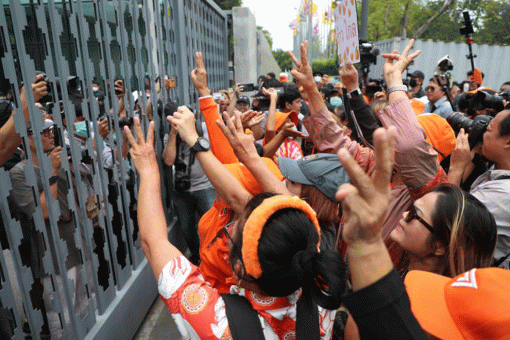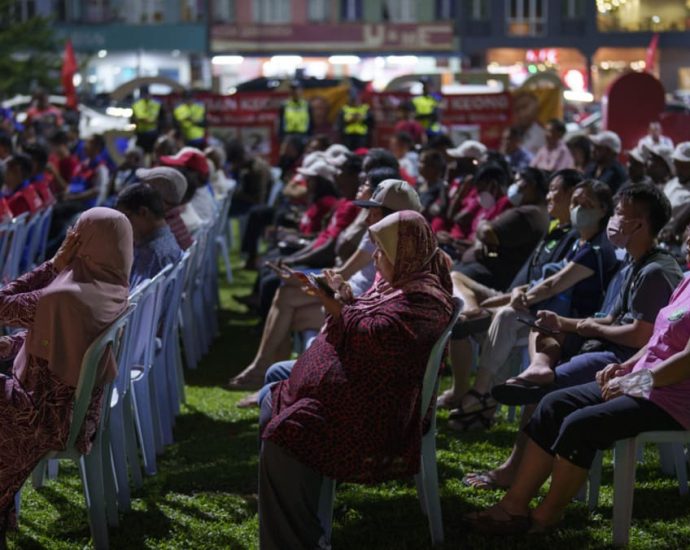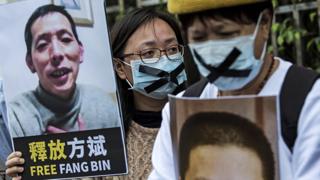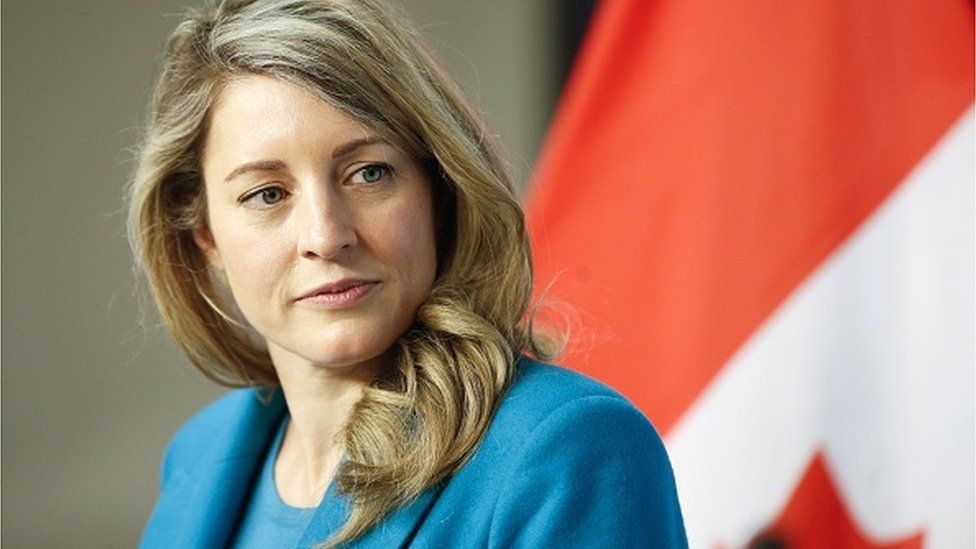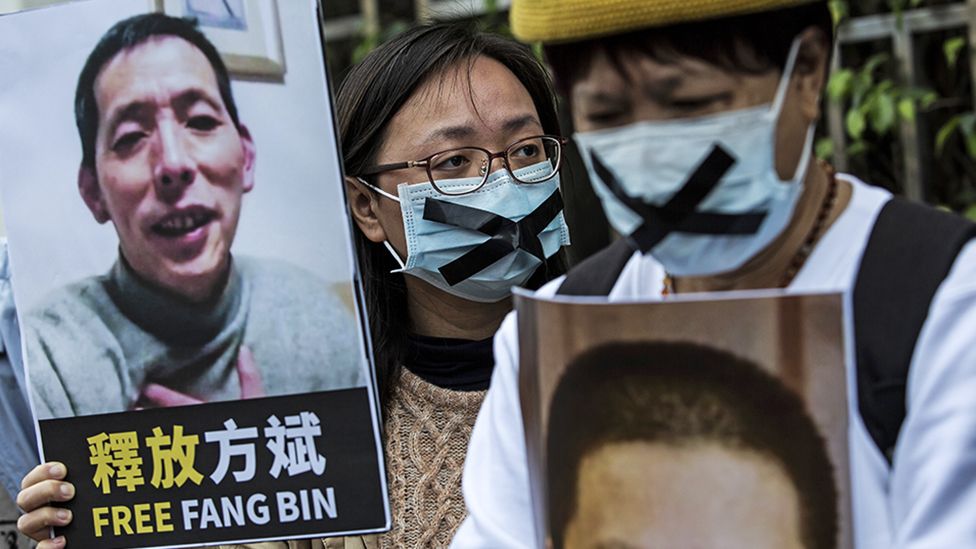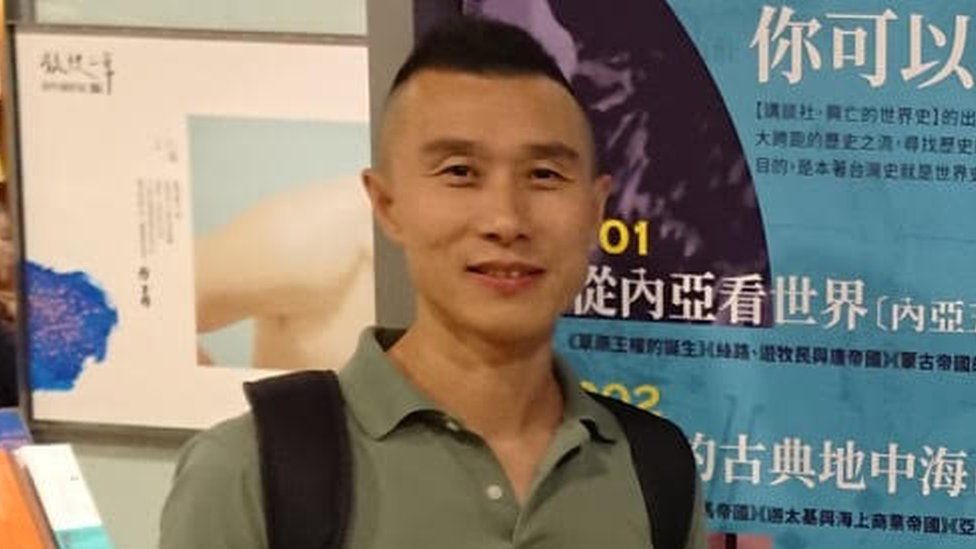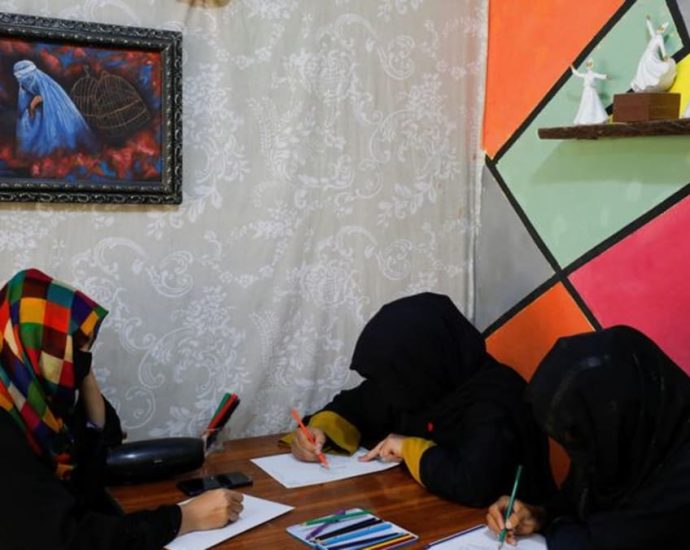‘They disappeared’: China flood victims criticise government response
Wu Chunlei, 42, whose two-storey house and factory were ruined, said villagers guided rescue groups to flood-stricken rural areas because government workers were not present. “At the time there was no phone signal and we couldn’t contact any local officials. We could only save ourselves,” Wu said. Reuters tried toContinue Reading
Graft-busters refuse to turn over Prawit watch details
NACC chief says full disclosure could endanger witnesses in case filed against deputy PM
PUBLISHED : 10 Aug 2023 at 18:16

The National Anti-Corruption Commission (NACC) is still refusing to reveal some information related to the luxury watch controversy concerning caretaker Deputy Prime Minister Prawit Wongsuwon.
The Supreme Administrative Court has given the NACC until Friday to disclose all the facts that it used to support its decision to clear Gen Prawit of failing to declare all his assets.
However, the anti-graft body intends to petition against the order because complete disclosure could compromise the safety of witnesses and discourage witnesses in other cases, NACC secretary-general Niwatichai Kasemmongkol said on Thursday
He said he would give an explanation to activist Veera Somkwamkid, who earlier demanded the information disclosure in the case.
After meeting Mr Niwatichai, Mr Veera said he was given only facts gathered from the investigation and minutes of NACC meetings concerning the case. He was not provided with the opinions of the NACC officials who handled the case.
The NACC secretary-general cited the need for witness protection as a reason for withholding the details, Mr Veera said.
The documents he received were partly redacted, which Mr Niwatichai attributed to a decision by the NACC, Mr Veera said.
The activist said the NACC and its secretary-general would have to take responsibility for disobeying the court’s order.
Earlier Mr Veera filed a petition with the Central Administrative Court demanding disclosure of the investigation following the NACC’s dismissal of the complaint against Gen Prawit in December 2018.
The commission ruled 5:3 that there were no grounds for the accusation that Gen Prawit had falsely declared his wealth when he did not include 22 luxury watches and rings in his list of assets.
The investigation was launched not long after Gen Prawit was spotted wearing a platinum Richard Mille RM 029 wristwatch valued at about 2.5 million baht and a diamond ring at a Government House event on Dec 4, 2017.
These items and other watches that came to light later were omitted from Gen Prawit’s asset declaration to the NACC.
Gen Prawit claimed the luxury watches belonged to a friend, who had since died, and had all been returned.
The NACC has three sets of documents related to the case and has disclosed two of them. The third set involves the opinions of NACC officials.
Mr Veera said earlier that he wanted to ask the new government how to amend laws to make the NACC a truly independent agency that would be open to scrutiny and transparent, in keeping with its motto.
North Koreans ordered to protect Kim dynasty portraits from Storm Khanun
SEOUL: North Koreans must prioritise safeguarding propaganda portraits of their leaders, the country’s official newspaper said, as a tropical storm made landfall on the Korean peninsula on Thursday (Aug 10). Tropical Storm Khanun, which battered Japan before taking a circuitous route towards the Korean peninsula, is set to move intoContinue Reading
Climate change cracking Chinaâs rice bowl
Downpours in late May 2023 in northern China flooded wheat fields, stirring both domestic and international concern about China’s wheat supply and the potential impacts on food security. Chinese officials described the flooding as “the most destructive rain event” for wheat production in the past decade.
In 2022, southern China suffered the country’s driest and hottest summer in six decades. The severe heatwave resulted in a massive drought, affecting an estimated 2.2 million hectares of farmland. Chinese officials are now concerned that drought could hit the Yangtze River basin, China’s main rice-growing region.
Extreme weather such as drought and floods have become major threats to China’s agricultural and food supplies. Over the past 70 years, China’s average temperature has risen faster than the global average, making the country extremely vulnerable to floods, droughts and typhoons. Extreme rainfall has reduced China’s rice yields by 8% over the past two decades.
Extreme climate events are expected to occur with increasing frequency in China, jeopardizing its food security plan. China’s agricultural sector is facing growing risks as a result of climate shocks and shifting planting conditions brought about by global warming.
Water shortages are the most significant and potentially most impactful component of the wider climate crisis. China will be among the most affected by water shortages. Water shortage and pollution have long been regarded as one of the top threats to the country’s food security.
Despite having the fifth-highest volume of renewable freshwater resources in the world, China’s per capita water resources were less than 25% of the world average in 2018. Worse still, the country’s freshwater resources are unevenly distributed across regions — the south faces periodic floods while the north battles frequent droughts.
The shift in China’s crop structure and spatial changes in grain production has made the water challenge even more daunting. To maintain grain self-sufficiency, China increased grain production by moving production to less-developed areas within the country, mostly to the inland and northern regions.
In 1995, China’s northern provinces produced 46% of the country’s grain and by 2021 this share had increased to 60%. Yet the northern provinces have only 24% of China’s freshwater resources.

Between 1995 and 2021, grain output in the northern provinces increased by nearly 200 million tonnes, whereas grain production in the southern provinces only increased marginally. Henan, Shandong and Hebei provinces, with only 4% of the country’s surface water resources, produced 24% of China’s grain.
The expansion of irrigated land, especially in the north, was one of the key contributors to China’s remarkable increase in grain production over the past decades. In China’s northern provinces, where rainfall and surface water resources are low, groundwater irrigation is vital.
Reliance on groundwater has resulted in over-extraction and adverse environmental effects. Since the late 1990s, groundwater overdraft has become one of China’s most serious resource problems.
Apart from water-scarcity challenges, the excessive use of chemical fertilizers and pesticides coupled with intensive farming practices have worsened land degradation and pollution.
Climate change threatens to exacerbate the water shortage, undermining China’s food security. The El Nino effect will cause increased climate uncertainty in the Yangtze River basin, causing flooding in the south, drought in the north and a cold summer in the northeast – aggravating water scarcity and regional disparities.
As the world’s largest food producer and importer, minor fluctuations in China’s domestic food production and adjustments in its agricultural trade policy heavily influence global food trade. The loss of wheat in Henan and other grain-producing provinces after the recent rain could mean China’s wheat imports reach 12 million tonnes in 2023.
The Chinese government is aware of the climate threats and water risks around providing enough food for its population and has enacted a wide range of policies in response.
The government has attempted to boost domestic grain production by providing more financial and policy support, pressing local governments to focus more on grain production and introducing stricter rules on farmland protection and usage.
It has also invested heavily in agricultural technologies — from genetically modified crops to space seed breeding, alternative proteins and agricultural autonomous systems and artificial intelligence.
The government launched a nationwide campaign to cut food waste and soybean and corn use in animal feed, aiming to reduce demand for food and feed grains. It has also been undertaking various attempts to enhance its external food supply resilience through import diversification, overseas investment and by creating new supply routes and fostering international cooperation.
Facing growing threats from extreme climate events, these measures can be expected to yield mixed results. Some measures have the potential to contribute to domestic and global food supply resilience, albeit not without controversy.
These measures include developing drought- and insect-resistant and salt-tolerant crops, investing in artificial or alternative proteins, boosting overseas agricultural investment and technological transfer and creating new food transportation routes.
Other measures, though, including forcefully boosting domestic grain production through intensive farming and reliance on coal-based fertilizer, will not only threaten the long-term sustainability of China’s food production but also undermine its plans to fight climate change.

Facing increasing threats from climate change, China needs to strike the right balance between boosting domestic grain production and water security. The current policy of pressuring dry northern provinces to produce more grain might make China’s food system even more vulnerable to climate shocks.
Rather, China needs to tap the potential of southern rain-fed provinces to grow more grains. It is also in China’s interest to step up global agricultural investment and agricultural technology transfers.
Only through a balanced strategy that integrates regional strengths within China and leverages global agricultural cooperation can China build resilience against climate change, secure a stable food supply and maintain its key role in global food trade.
Hongzhou Zhang is Research Fellow with the China Programme at the S Rajaratnam School of International Studies (RSIS), Nanyang Technological University, Singapore.
This article was originally published by East Asia Forum and is republished under a Creative Commons license.
Japan ready to impose crowd control on Mount Fuji
Authorities said the planned measures – a first for Mount Fuji – wouldn’t amount to an outright entry ban, but are meant to “guide” hikers on the trails, including temporarily halting their progress. Under the policy, local police will be alerted and urged to weigh in if trails get busyContinue Reading
Most MFP backers âoppose voting for Pheu Thai PM pickâ
Election-winning party says it will take its direction from the people who gave it 14 million votes

The majority of Move Forward Party (MFP) supporters do not approve of the party voting for the prime ministerial candidate of the Pheu Thai Party, according to some senior Move Forward members.
The party cited results of internal opinion polls conducted by MPs showing that at least 95% of supporters are against supporting Pheu Thai’s prime ministerial candidate in parliament.
Senior Pheu Thai figures, led by Paetongtarn Shinawatra, the daughter of party patriarch Thaksin Shinawatra, visited the MFP head office on Wednesday to seek support for its candidate, expected to be real estate billionaire Srettha Thavisin. Ms Paetongtarn and Chaikasem Nitisiri are the other two candidates.
Move Forward leaders gave no answer, saying they were awaiting more feedback from the people who gave the party more than 14 million votes in the May 14 general election.
On Thursday, MFP list-MP Wiroj Lakkhanaadisorn wrote on Facebook that the party must not vote in a way that opens the door to the legacy of dictatorship to re-enter government.
He was referring to the “uncles” parties: Palang Pracharath (PPRP) led by Deputy Prime Minister Prawit Wongsuwon and United Thai Nation (UTN), for which Prime Minister Prayut Chan-o-cha formerly served as chief adviser.
The MFP insists that the two army generals, who had prominent roles in the 2014 coup and the National Council for Peace and Order that ran the country until 2019, maintain a firm grip on their respective parties.
Mr Wiroj’s remark came amid growing speculation that either or both parties could be invited to join the new Pheu Thai-led coalition.
Mr Wiroj said the very people Pheu Thai should reach out to were its red shirt supporters who have fought to defend Pheu Thai’s political cause for almost 20 years.
Pheu Thai has been accused of ignoring the wishes of many red shirts who wanted to see it and Move Forward, along with other parties in the so-called pro-democracy camp, form a government together.
Pheu Thai is now pressing ahead with the government formation effort with the Bhumjaithai and Chartthaipattana parties as well as six small parties agreeing to be part of the new coalition lineup.
The new coalition now commands 238 MP seats, which still falls 13 seats short of a simple majority in the 500-seat House of Representatives. Pheu Thai has said it will have at least 250 MP votes when the time comes to choose the new prime minister, which could come as soon as late next week.
Pheu Thai is expected to approach at least one more party from the previous government bloc to join. Those not invited so far are the PPRP, UTN and the Democrat Party. The latter has been in disarray for weeks, having made two failed attempts to choose a new leader.
Even with those three parties in the lineup, Mr Srettha would still need the support of some senators to win a prime ministerial vote.
Pheu Thai’s original plan was to persuade the MFP to back Mr Srettha. That way, the votes of senators would not be required to produce a majority at a combined House and Senate sitting.
Mr Wiroj said that as far as he was concerned, Move Forward would be neglecting its own supporters’ mandate if it voted for Pheu Thai’s candidate.
‘Pheu Thai does have a choice’
He added that Pheu Thai should not use an MFP refusal to back Mr Srettha as an excuse to turn to the “uncles” parties for support.
“Pheu Thai does have a choice. There’s always the eight-party alliance to fall back on,” he said, referring to previous coalition pact with Move Forward at its head.
However, that coalition collapsed because almost no senators would vote for Move Forward leader Pita Limjaroenrat, saying his party’s plan to amend the sensitive lese-majeste law was a deal-breaker.
Many individual Move Forward MPs this week have been conducting yes/no mini-polls on social media about voting for a Pheu Thai candidate. The results are 90-95% opposed, but it cannot be verified whether these “votes” come from constituents, and whether people voted more than once.
Natthapol Towijakchaikul, an MFP MP for Chiang Mai, said he organised an online survey which found 95% disapproved of the party getting behind Pheu Thai’s prime ministerial candidate.
“We’re all ears to the voice of the people,” he said.
Some supporters, he added, were stressed about the country carrying on without a fully functioning government for months. However, they were prepared to wait further.
Move Forward earlier suggested the prime ministerial selection be put on hold until May next year when the current senators’ power to electing a prime minister will expire. Mr Pita could then be voted in as premier without an obstacle.
The next Senate will not have the power to vote for a PM, something that was outlined in “provisonal clause” inserted into the constitution by the Prayut government after the public approved the 2017 charter in a referendum.
Prasertpong Sornnuwat, another MFP MP, admitted party supporters in some constituencies were split over whether to support Mr Srettha for prime minister.
Malaysia state polls: 9 percentage point fall in voter turnout could hurt Anwar’s unity coalition more, observers say
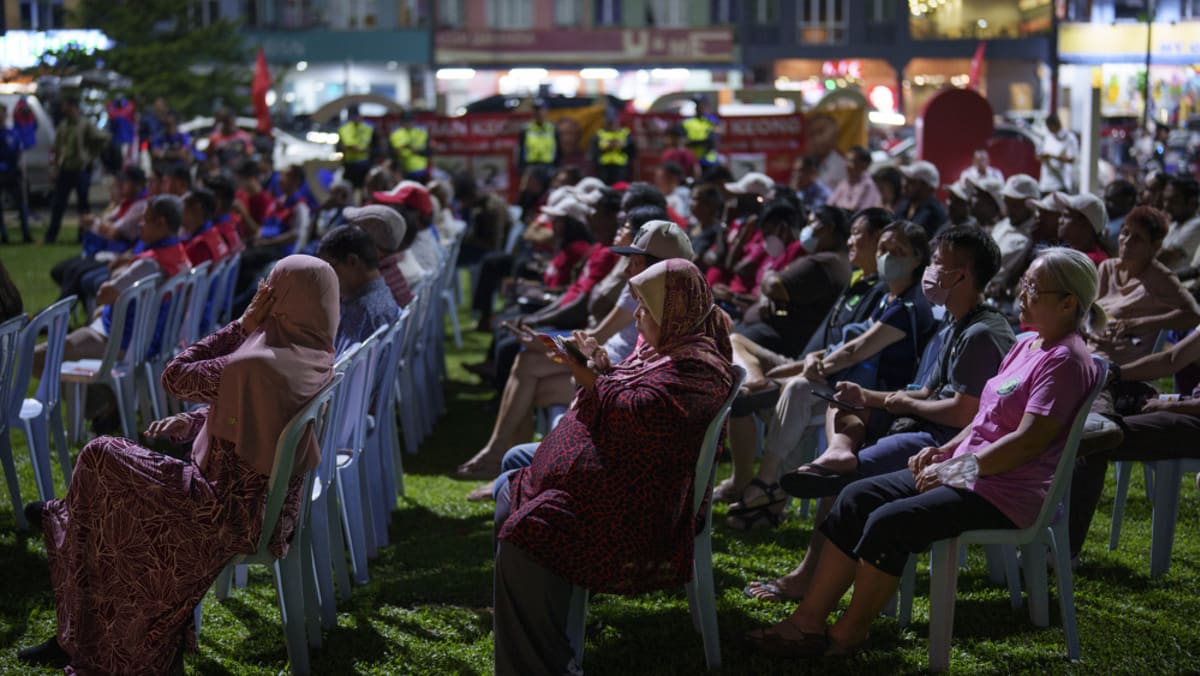
One voter who tells CNA that he will not be casting his ballot for the upcoming polls is Farizul Izwani, who is registered to vote at the state constituency of Cempaka in Kelantan
Farizul, who is based in Selangor for work, says that travelling home might be cumbersome, and he feels that it is unlikely that his vote would matter in the bigger picture.
“When I travelled back to vote in the general election, I had to endure a nine-hour traffic jam from KL to Kelantan,” says the 42-year-old.
“PAS (Parti Islam Se-Malaysia) is also very strong in Kelantan. I don’t think my vote will be enough to sway support for PH-BN,” says Mr Farizul, who is a PH supporter.
Mr Thomas Fann, chairman for non-governmental group – The Coalition for Clean and Fair Elections – which is better known as Bersih, predicts that the voter turnout is likely to be around 64 per cent based on the feedback he received.
“State elections not held in conjunction with the General Election tend to have a lower voter turnout by around 10-15 per cent. For the upcoming state polls, the early signs are not good … We are a bit concerned,” says Mr Fann.
Bersih is a strong advocate for mass participation at the polls, and has launched a #VoteLocal campaign on Aug 1 to persuade voters to cast their ballots irregardless of which party they support.
Mr Fann cites how the PH candidate Michelle Ng for the Subang Jaya state seat in Selangor recently revealed that there has been a lower number of postal ballots issued for her constituency than expected.
In the video posted on Instagram, Ms Ng says that only 398 postal ballots were issued by the Election Commission for the Subang Jaya state seat for the upcoming polls.
This is significantly lower from the projected 1,425 postal ballots issued for the area during GE15 for the Subang parliamentary seat.
“If this is reflective of the voter turnout rate on Aug 12, we are headed for disaster. In order for PH to retain the state, we need at least a 65 per cent turnout. I hope this is a wake-up call,” she says in the video.
LOWER TURNOUT AMONG ETHNIC MINORITIES LIKELY TO ADVANTAGE PN
On how this lower voter turnout could impact overall results, observers CNA spoke to outline that a large number of voters who will abstain from voting will likely be the ethnic minorities – Chinese and Indians who are based out of state.
They add that this will likely hurt the PH-BN alliance more, as the majority of ethnic minorities support the coalition.
Bersih’s Mr Fann tells CNA: “Based on our interaction and observations with overseas voters and voters out of state, the profile of this group is typically those of Chinese ethnicity, who are registered to seats near the west coast of Peninsula Malaysia.”
He adds that a lower voter turnout for these seats would probably handicap PH.
“(With lower voter turnout), I think the seats in the West Coast would probably become a lot more competitive and may be decided by a few hundred votes,” says Mr Fann.
Ilham Centre’s Mr Hisommudin also cites data from the Melaka and Johor state polls held in 2021 and 2022 respectively, as examples of how PH’s performance was adversely impacted by relatively lower turnout by the minority voters.
Based on statistics provided by the Election Commission, the turnout for the Chinese and Indians in Melaka and Johor were 68 per cent and 43 per cent respectively.
This was lower than the figures for the General Election in November, which was 72 per cent and 68 per cent for the Chinese and Indians in Melaka and Johor respectively.
Cheng Lei: Journalist held in China says she sees only 10 hours of sun a year
 Nick Coyle
Nick CoyleAn Australian journalist – held in detention in China for three years as of this weekend – has spoken publicly for the first time.
“I miss the sun. In my cell, the sunlight shines through the window, but I can stand in it for only 10 hours a year,” Cheng Lei said in an open letter to the people of Australia, dictated to diplomats who are able to speak to her each month.
“I can’t believe I used to avoid the sun when I was living back in Australia… It’ll probably rain the first two weeks I’m back in Melbourne,”
“I haven’t seen a tree in three years,” she said.
The finance reporter was working for China’s state media English-language television station CGTN when she was picked up, spending her first six months of detention in solitary confinement without charge.
In March last year, Ms Cheng was tried in secret and has been waiting for a year and four months to be sentenced.
Australia’s ambassador to China, Graham Fletcher, tried unsuccessfully to gain entry to the court to witness proceedings.
Even her family is not aware of what she is accused, other than that it is said to involve passing on “state secrets”.
In China, what constitutes a state secret is a very vague concept and can involve anything which the government deems to be sensitive.
The letter released today is filled with nostalgia of her life in Australia, the country her family immigrated to from Hunan Province when she was just 10 years old.
“In 1987, I remember camping for the first time with my family, my dad driving a $700 [£360] car,” she said.
“I relive every bushwalk, river, lake, beach with swims and picnics with psychedelic sunsets, sky that is lit up with stars, and the silent and secret symphony of the bush.”
In prison, the former TV anchor said that she “secretly mouth[s] the names of places I’ve visited and driven through” in Australia.
In what she describes as “a love letter to 25 million people”, Ms Cheng said she recalls the kindness of strangers and friends alike and that the memories of such kindness “have come back to me now and restored me” behind bars.
She said she misses sea salt, black humour, the Queensland tropics and the never-ending blue skies of Western Australia, as well as the sand between her toes.
There has been some speculation that the sentencing of Ms Cheng has been delayed so that her case can be used as a bargaining chip in the Chinese government’s dealings with its Australian counterpart.
Australian Prime Minister Anthony Albanese has been invited to Beijing to meet Xi Jinping. However, he is coming under considerable pressure at home not to make the trip until Ms Cheng and fellow Australian Yang Hengjun have been released.
The end of her letter contains probably the most important line: “Most of all, I miss my children.”
Related Topics
Art therapy offers relief to Afghan women struggling with mental health
The Taliban closed universities to women in December 2022, sparking rare public protests. The decision came in the wake of the closure of most girls’ high schools and was followed by Taliban authorities ordering most Afghan female humanitarian workers not to work. The orders restricting women from public life haveContinue Reading
Iraqi held for overstaying visa for 15 years
Man found in Kanchanaburi guesthouse faces 10-year ban from re-entering country
PUBLISHED : 10 Aug 2023 at 16:05

KANCHANABURI: An Iraqi man has been arrested in this border province for overstaying his visa by almost 15 years.
Immigration police arrested Oday Jabbar Khudhair, 43, at a local guesthouse on Thursday, said Pol Col Korn Somkhanae, chief of the Kanchanaburi immigration office. He did not say what district the guesthouse was located in.
The arrest followed a complaint that a foreign national had been acting suspiciously and might have committed an immigration offence, authorities said. He had reportedly moved from another part of the country to stay in Kanchanaburi.
Pol Col Korn led immigration police officers to the guesthouse where they found Mr Khudhair. A check of his passport showed his visa had expired on Aug 21, 2008.
Mr Khudhair was charged with overstaying his visa by 5,468 days and detained for legal proceedings.
The fine for overstaying a visa is 500 baht per day but the maximum has been set at 20,000 baht.
For more serious cases, an overstayer will be deported and banned from re-entering Thailand for a certain period. Those overstaying for more than 5 years will be banned from entering the country for 10 years.

